 Shutterstock
Shutterstock
Just like humans, dogs need regular dental care to maintain good health. Unfortunately, many pet parents underestimate the importance of their dog’s oral hygiene. Neglecting your dog’s teeth can lead to painful conditions like gingivitis, tooth decay, and even more serious health issues, such as heart and kidney disease. Caring for your dog’s teeth goes beyond a sparkling smile; it’s essential for their well-being. The good news is that there are plenty of simple and effective ways to keep your pup’s pearly whites healthy, ensuring they stay happy and pain-free.
Use Coconut Oil for Dental Health
 Shutterstock
Shutterstock
Coconut oil is not just great for your dog’s skin and coat; it can also support oral hygiene. Many dog owners use coconut oil as a natural toothpaste alternative because of its antibacterial properties. You can apply a small amount to your dog’s toothbrush or rub it directly onto their gums to help reduce plaque buildup. The added bonus is that most dogs love the taste of coconut oil, making dental care feel like a treat rather than a chore. However, remember to use it in moderation and consult your vet for safe guidance on using natural remedies.
Brush Those Canines (Literally)
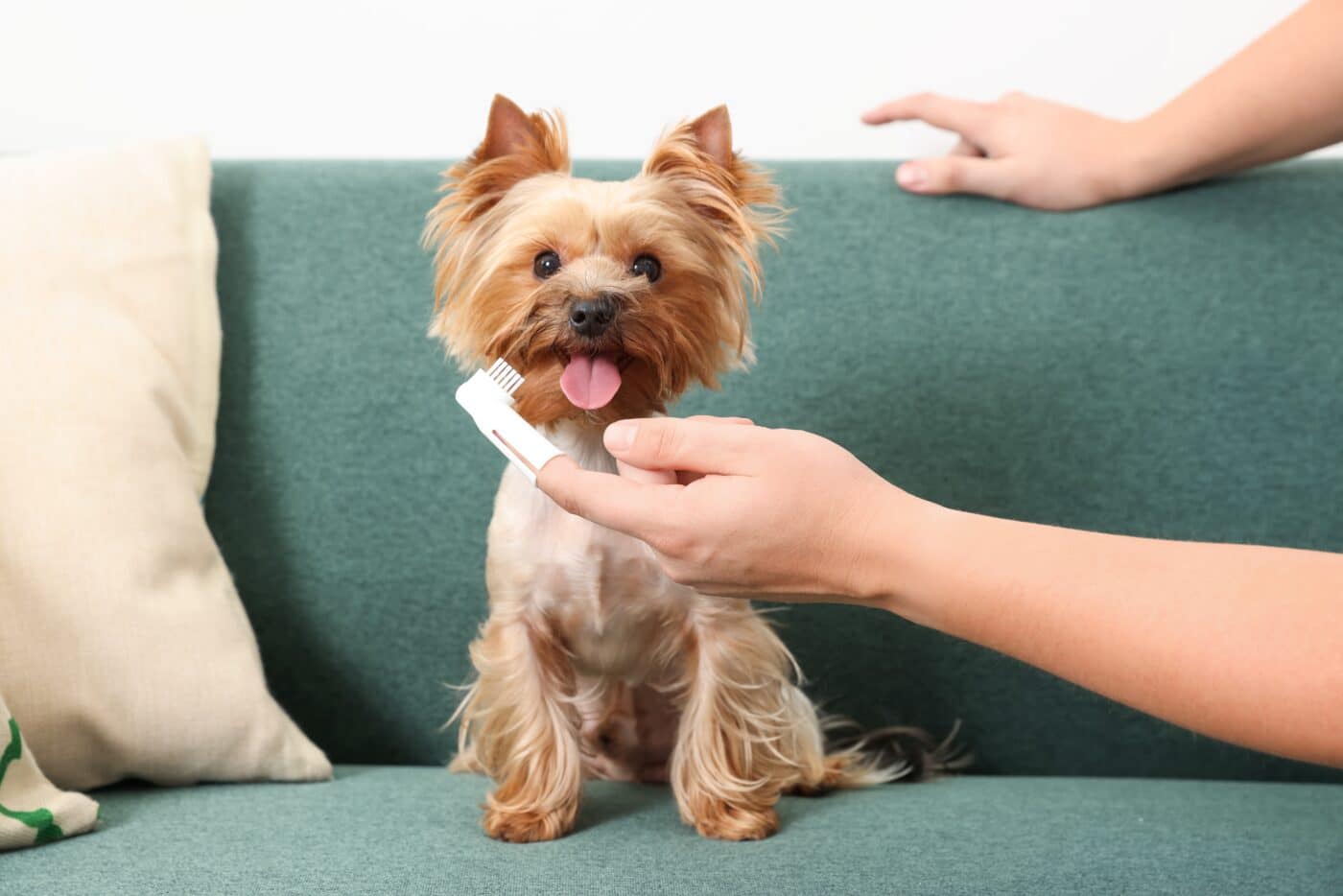 Shutterstock
Shutterstock
Brushing your dog’s teeth is one of the most effective ways to prevent plaque buildup and keep their gums healthy. Daily brushing is ideal, but a few times a week can make a big difference. Use a dog-specific toothbrush and toothpaste, as human toothpaste can be toxic to dogs. Start slowly, making it a positive experience with plenty of praise and rewards. Many dogs dislike having their mouths handled, so patience is key. Brushing removes food particles and bacteria that can turn into tartar, reducing the risk of gum disease and bad breath.
Dental Chews Are Your Dog’s Best Friend
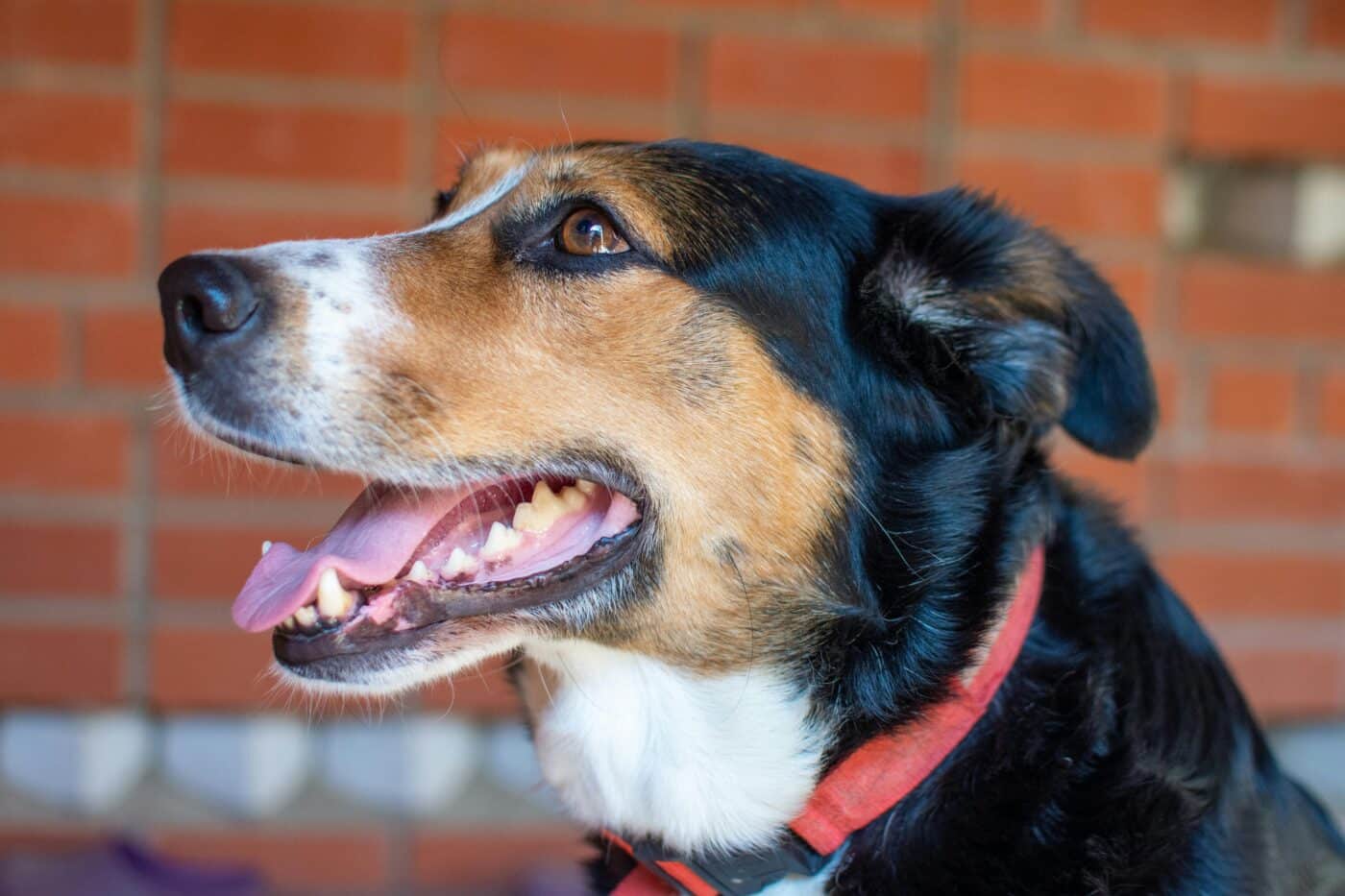 Shutterstock
Shutterstock
Dental chews are not just tasty treats but also significant in your dog’s oral health. These specially designed chews help scrape off plaque and tartar from your dog’s teeth as they chew. Look for chews approved by the Veterinary Oral Health Council (VOHC) for maximum effectiveness. Not only do they help clean your dog’s teeth, but they also keep your pup occupied and happy. Remember that not all dental chews are created equal, so consult your veterinarian to find the best option for your dog’s size, age, and dental needs.
Consider Dental-Friendly Toys
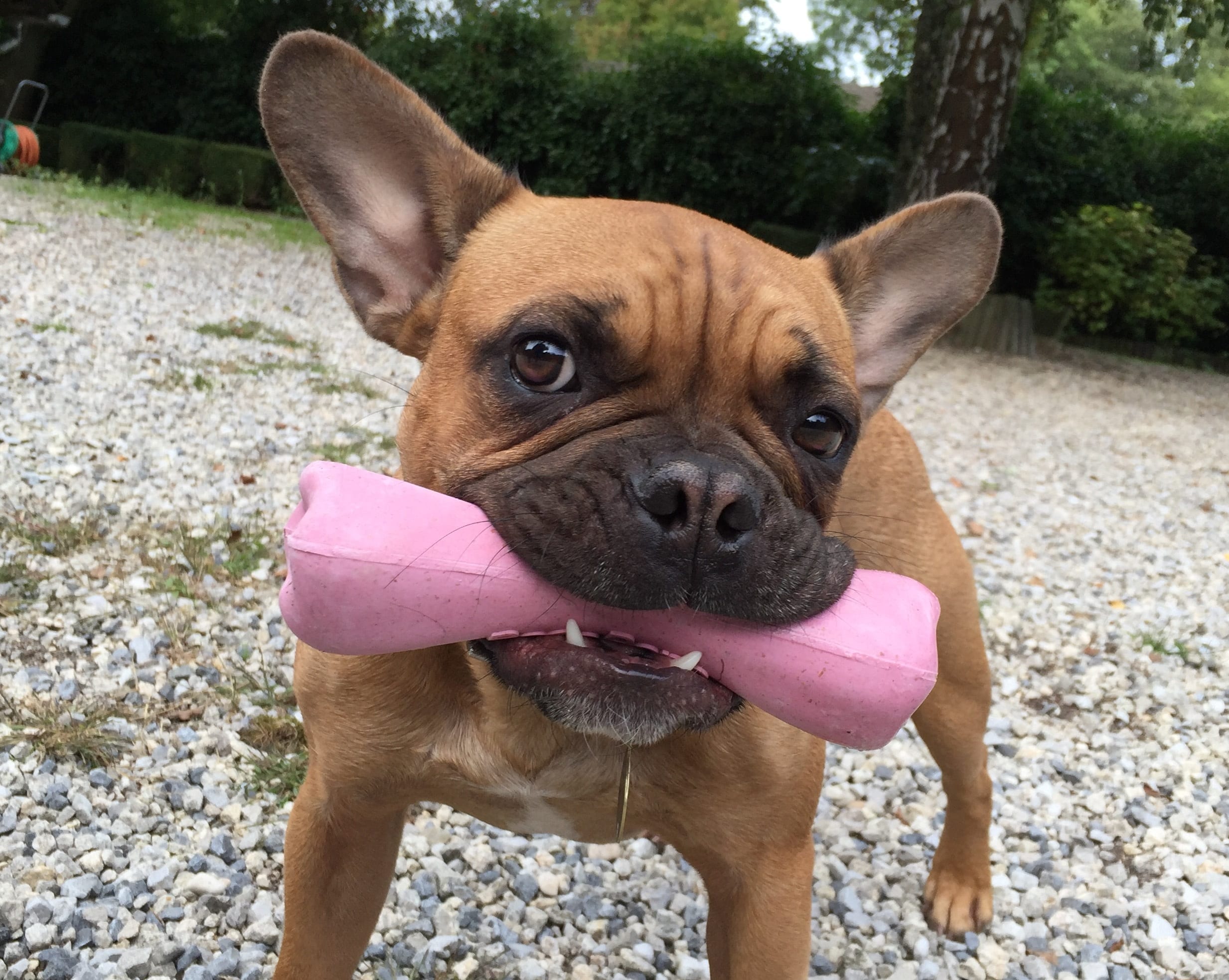 Shutterstock
Shutterstock
Toys aren’t just for fun—they can also contribute to your dog’s dental health. Chew toys made from durable rubber or nylon can help clean your dog’s teeth and massage their gums. Some toys even have grooves or nubs designed to scrape away plaque as your dog chews. Dental toys provide a dual benefit: they entertain your dog while supporting oral hygiene. However, make sure to choose safe and appropriate toys for your dog’s chewing strength to prevent accidental damage to their teeth or gums.
Offer Raw Bones in Moderation
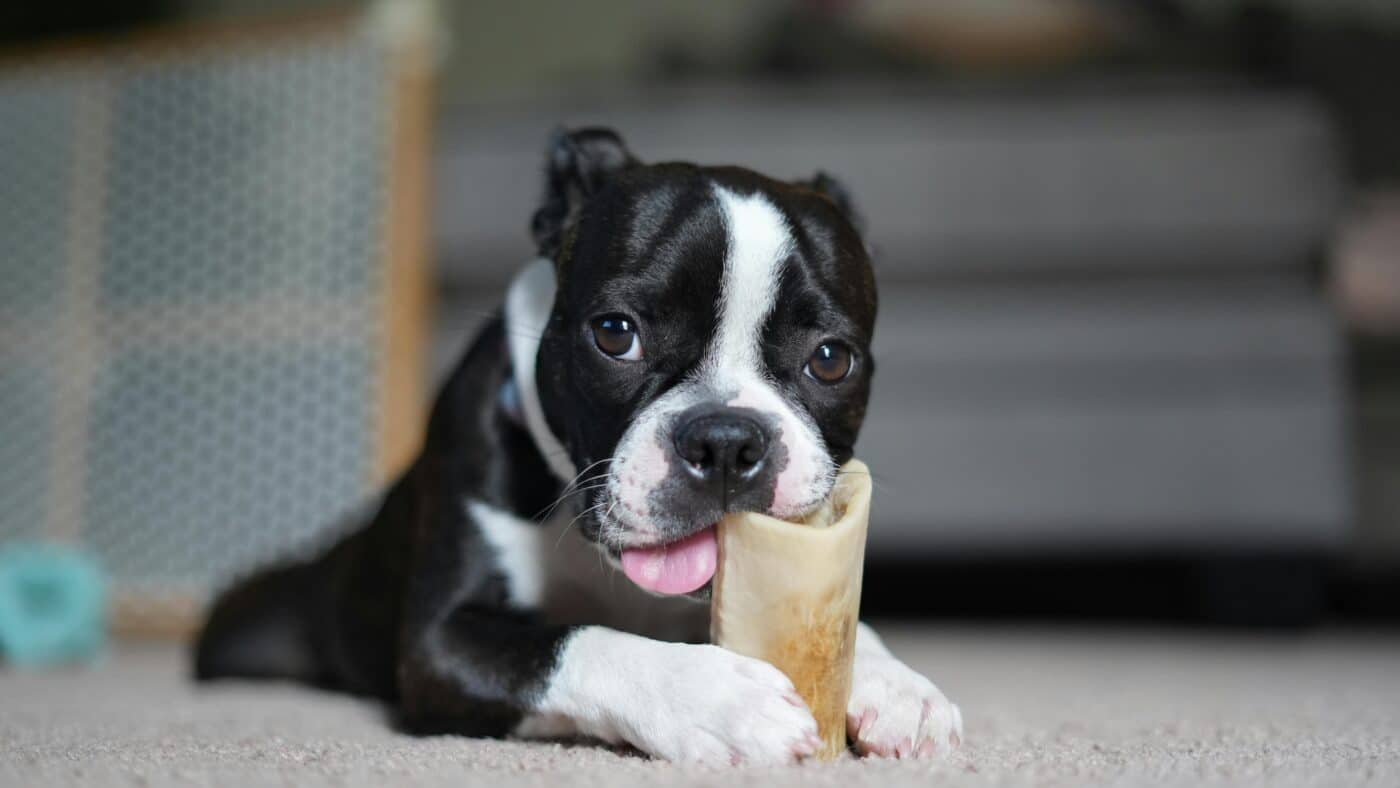 Shutterstock
Shutterstock
When chosen carefully, raw bones can be a great natural way to clean your dog’s teeth. Chewing on bones helps scrape away plaque and provides mental stimulation. However, using raw bones rather than cooked ones is crucial, as cooked bones can splinter and pose a choking hazard. Supervise your dog while they chew and ensure the bone is appropriately sized. Not all dogs are suitable for bones, especially if they have a history of aggressive chewing or dental issues, so consult your veterinarian before offering bones as part of your dog’s dental care routine.
Schedule Regular Vet Check-Ups
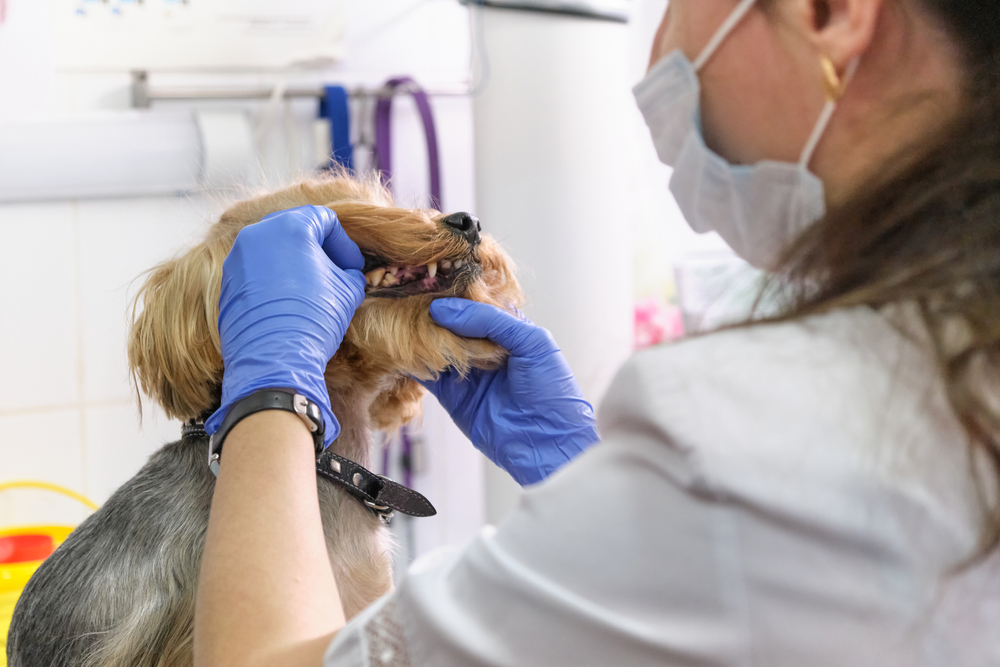 Shutterstock
Shutterstock
Regular vet visits are crucial for maintaining your dog’s dental health. During a check-up, your veterinarian will examine your dog’s mouth, teeth, and gums for signs of disease or decay. They may recommend a professional cleaning for significant tartar buildup or other concerns. Professional cleanings involve scaling and polishing your dog’s teeth, often requiring anesthesia to ensure the procedure is safe and effective. Preventative care is much easier (and cheaper) than dealing with advanced dental problems, so don’t skip those yearly check-ups. Your vet can also give personalized advice for keeping your dog’s teeth in shape.
Use Dental Water Additives
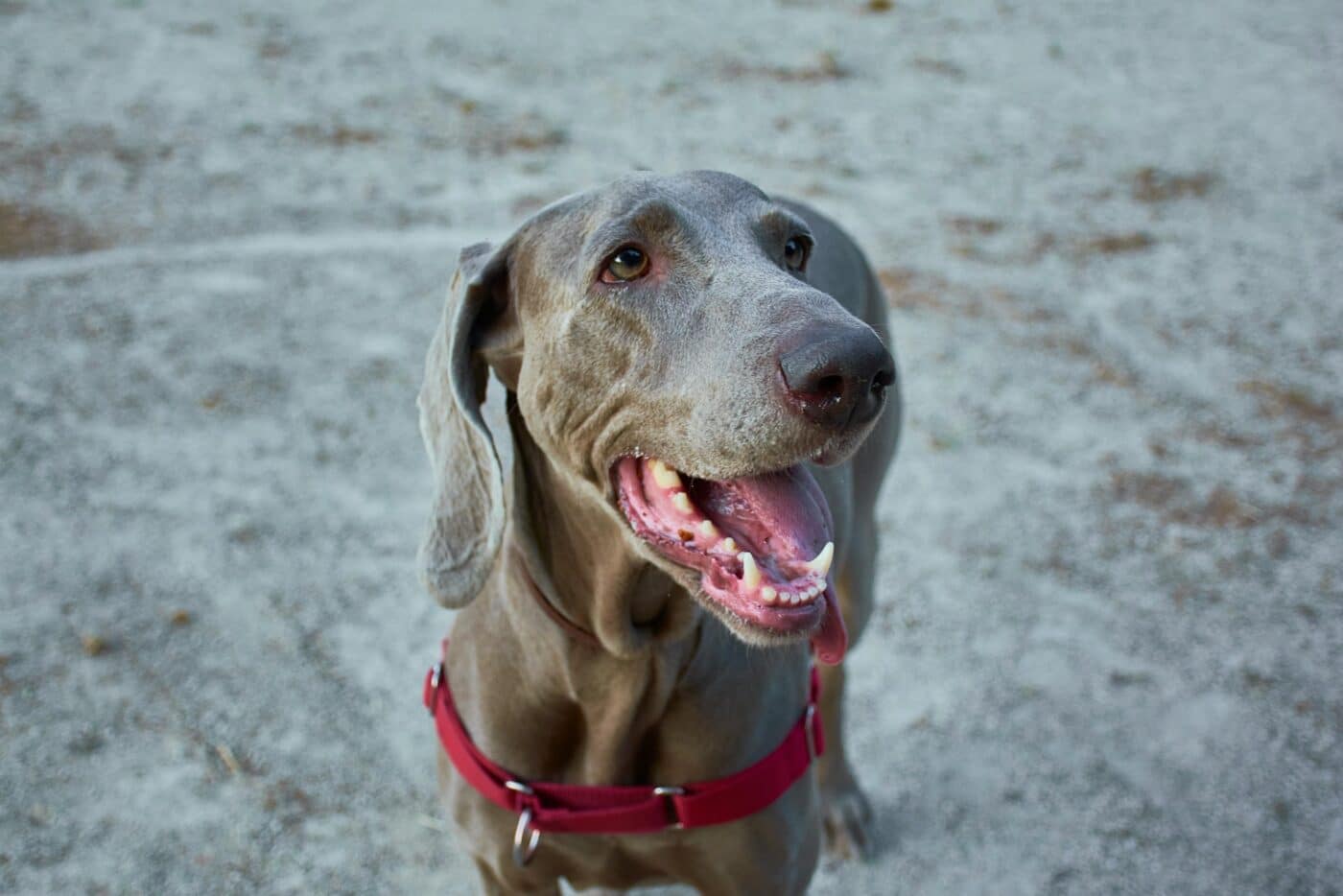 Shutterstock
Shutterstock
Dental water additives are an easy way to support your dog’s oral hygiene. These additives are mixed into your dog’s drinking water and help fight bacteria and plaque. While they’re not a substitute for brushing, they can be a helpful addition to your dog’s dental care routine. Look for products that are veterinarian-approved and specifically designed for dogs. Dental water additives are particularly useful for dogs who resist brushing or have difficulty tolerating dental chews. Monitor your dog’s water intake to ensure they drink enough when additives are used.
Feed a Balanced, Dental-Friendly Diet
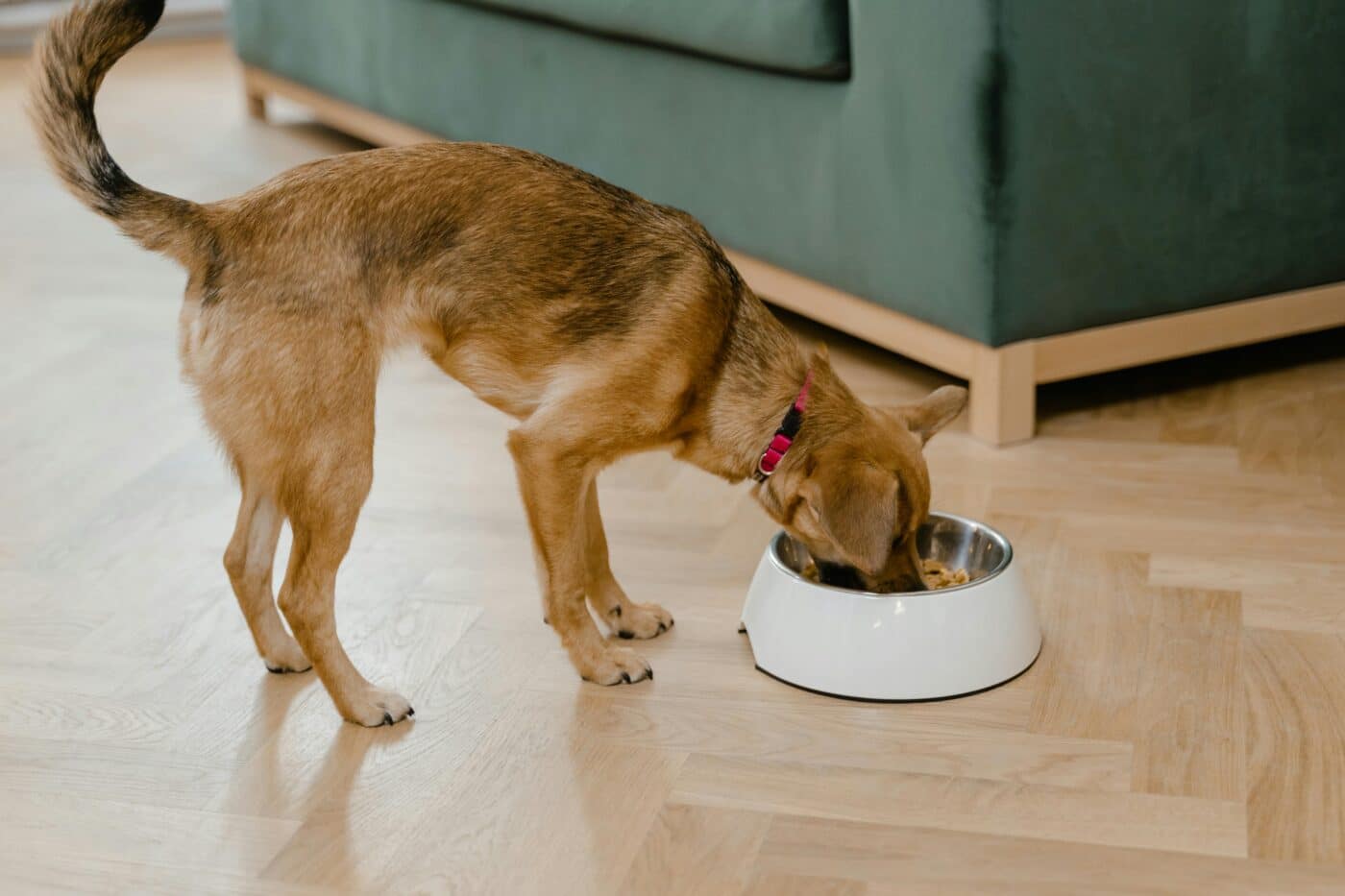 Shutterstock
Shutterstock
A balanced diet not only keeps your dog healthy but can also promote good dental health. Dry kibble is generally better for teeth than wet food, as it helps scrape away plaque while your dog chews. Some dog foods are even formulated to support dental health, with larger kibble sizes or specialized ingredients to reduce plaque buildup. Avoid feeding your dog table scraps or sugary treats, as these can accelerate tooth decay. A diet rich in vitamins and minerals also supports strong teeth and healthy gums, providing your dog with a solid foundation for good oral hygiene.
Check for Broken or Damaged Teeth
 Shutterstock
Shutterstock
Dogs can sometimes break or crack their teeth, especially if they’re aggressive chewers. Inspect your dog’s mouth regularly for signs of broken teeth, bleeding gums, or unusual swelling. Broken teeth can be incredibly painful and may lead to infections if not treated promptly. If you notice anything concerning, consult your veterinarian immediately. Dogs are masters at hiding pain, so dental issues can be brewing under the surface even if they seem fine. Early intervention can save your dog from unnecessary discomfort and prevent the problem from worsening.
Avoid Hard Chews and Toys
 Shutterstock
Shutterstock
While dental chews are beneficial, not all hard items are safe for your dog’s teeth. Chewing on things like ice cubes, antlers, or hard bones can lead to fractures or chipped teeth. When choosing toys and chews, opt for ones with a little “give” to them. The rule of thumb is if you can’t make a dent in the chew with your fingernail, it’s too hard for your dog’s teeth. Protecting your dog’s teeth from damage is just as important as keeping them clean, so always prioritize safety over durability when selecting chews and toys.
Don’t Ignore Changes in Eating Habits
 Shutterstock
Shutterstock
If your dog suddenly becomes reluctant to eat or starts chewing on one side of their mouth, it could be a sign of dental pain. Other indicators include dropping food, excessive drooling, or pawing at their face. Dental problems can make eating uncomfortable, leading to weight loss and other health issues. Monitor your dog’s eating habits and consult your veterinarian if you notice any changes. Early detection of dental pain can lead to more effective treatment and quicker recovery. Remember, your dog’s behavior can tell much about their oral health.
Consider Dental Gels and Sprays
 Shutterstock
Shutterstock
Dental gels and sprays can be a great addition to your dog’s oral care routine. These products are designed to break down plaque and freshen breath, making them ideal for dogs who dislike brushing. Simply apply the gel to your dog’s teeth and gums or spray it into their mouth. Many gels contain enzymes that naturally fight bacteria and promote a healthy oral environment. While they shouldn’t replace regular brushing, they’re a convenient option for extra protection. Make sure to choose dog-safe products and consult your veterinarian for recommendations tailored to your pet’s needs.
Monitor Your Dog’s Chewing Habits
 Shutterstock
Shutterstock
Your dog’s chewing habits can give you valuable insight into their dental health. Dogs that suddenly become less enthusiastic about chewing may be experiencing oral discomfort. Conversely, dogs that chew excessively or in a destructive manner might be trying to alleviate dental pain. Pay attention to what your dog likes to chew on and how often they do it. Providing safe, dental-friendly options can satisfy their need to chew while promoting healthy teeth. Always watch for changes in behavior and consult your vet if something seems off.
Start Dental Care Early
 Shutterstock
Shutterstock
Getting your dog used to dental care from a young age can set the stage for a lifetime of healthy teeth. Puppies are more receptive to having their mouths handled, making it easier to introduce toothbrushing and regular oral check-ups. Early dental care can prevent the buildup of plaque and tartar, reducing the risk of gum disease as your dog grows older. It’s never too late to start, even if you adopt an older dog. The sooner you establish a dental care routine, the better your dog’s oral and overall health will be.
The Tooth, The Whole Tooth, and Nothing But the Tooth
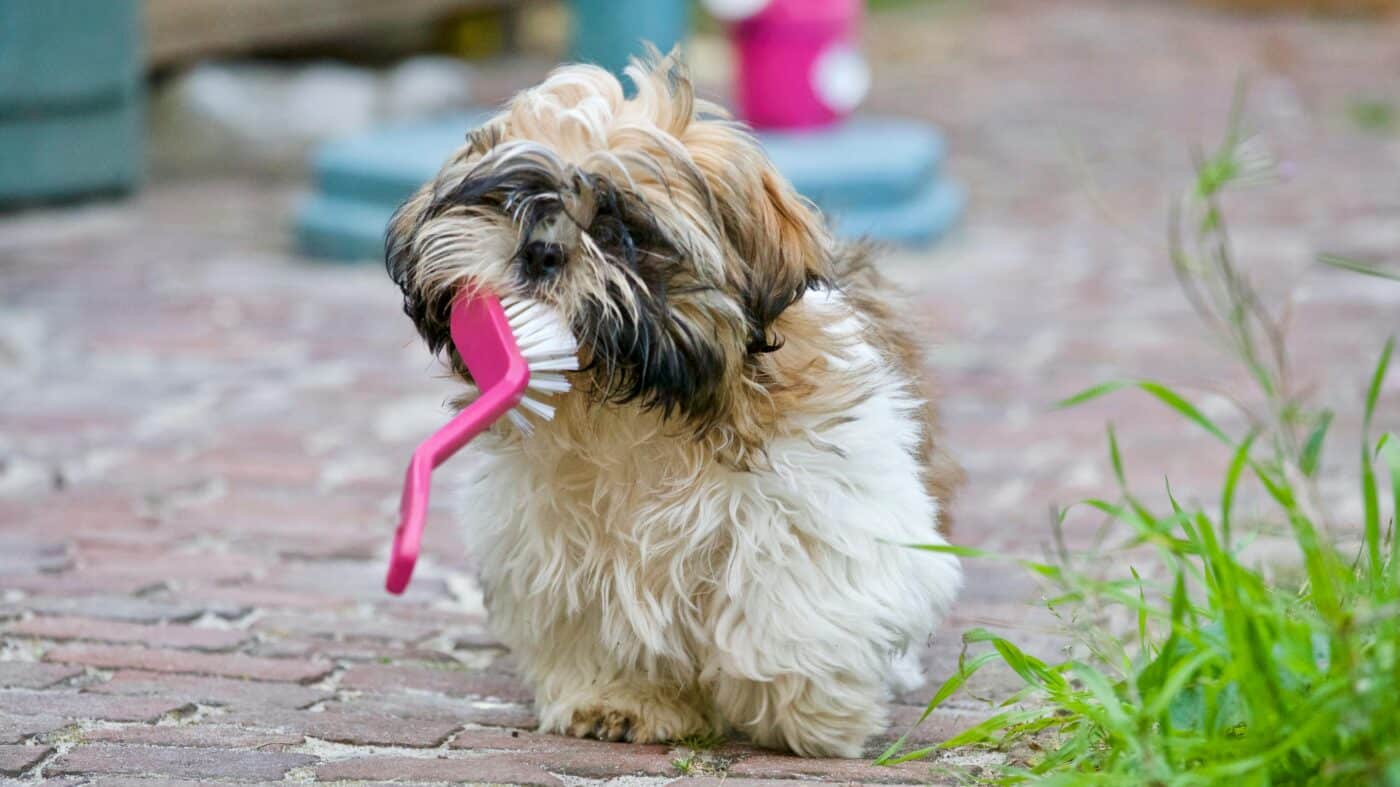 Shutterstock
Shutterstock
Keeping your dog’s teeth healthy may seem daunting, but it doesn’t have to be. You can give your pup the dental care they need with the right tools, patience, and a consistent routine. Remember, a healthy mouth leads to a healthier, happier dog, so every little effort counts whether you’re brushing their teeth, offering dental chews, or just keeping an eye on their oral habits. After all, your dog’s smile is worth it—and who doesn’t want more happy, tail-wagging grins in their life?

 1 week ago
7
1 week ago
7







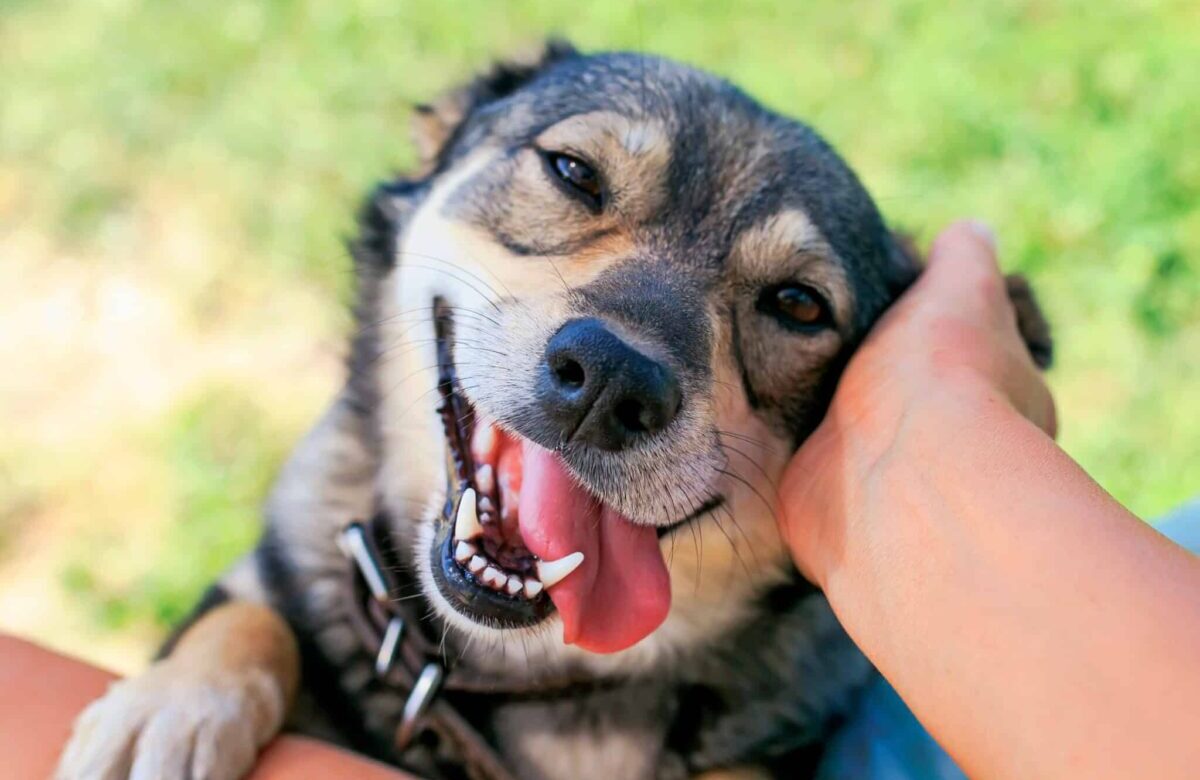

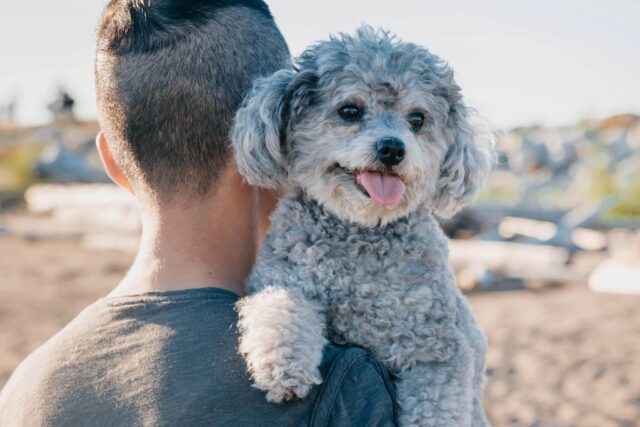


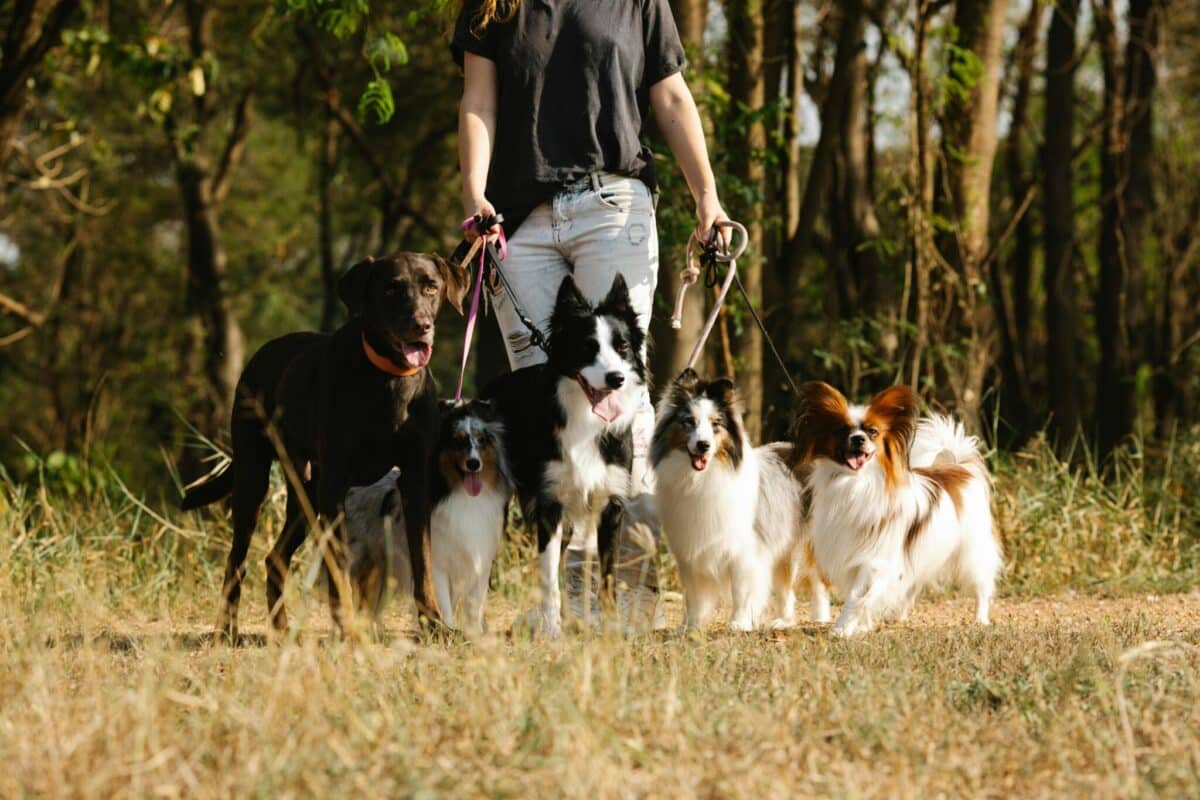
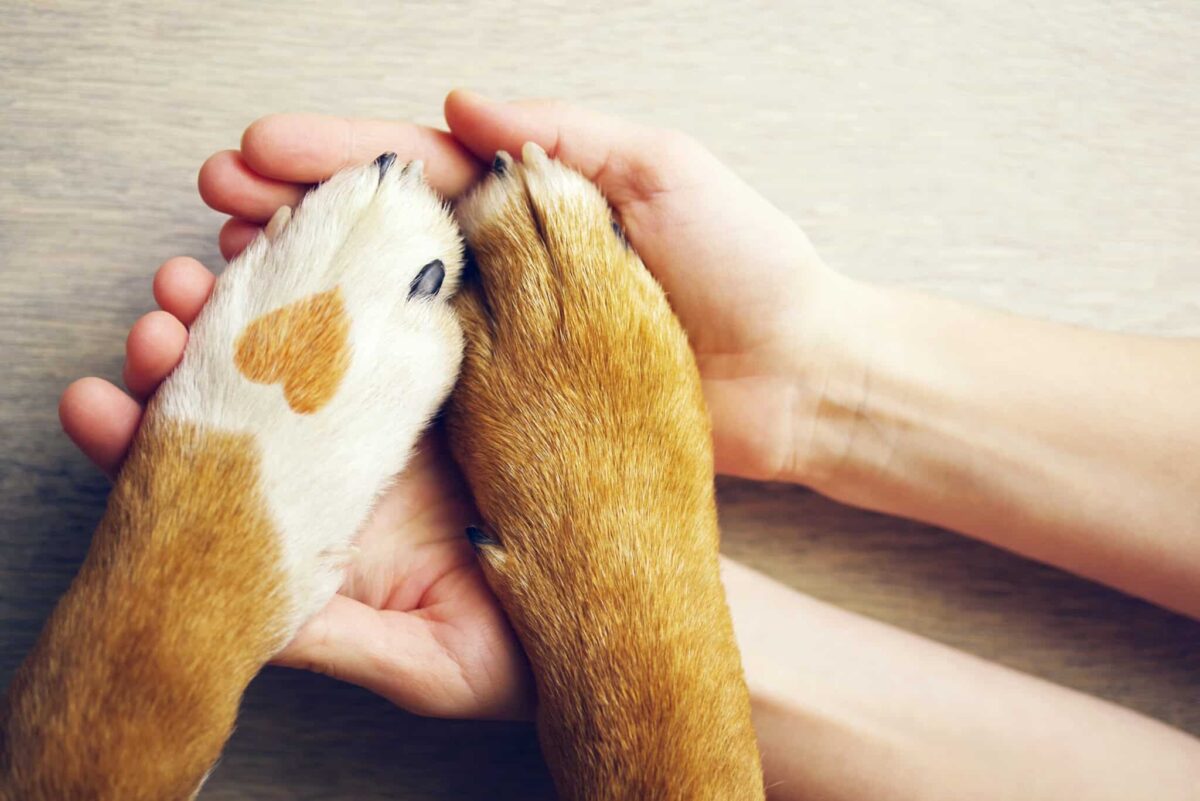

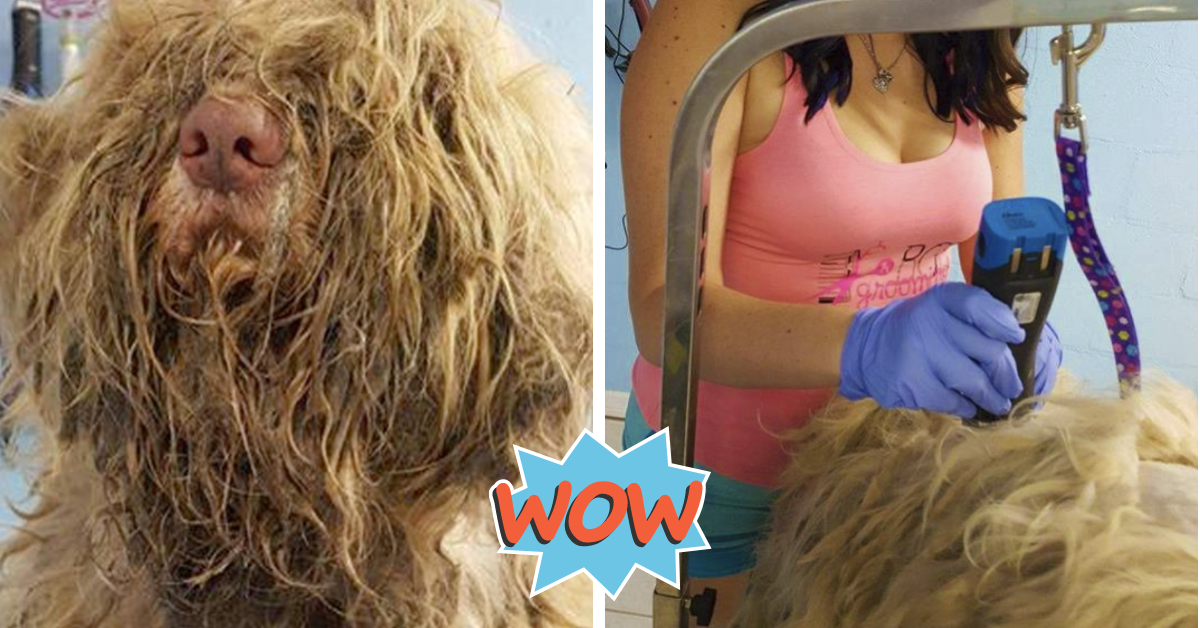


 English (US) ·
English (US) ·